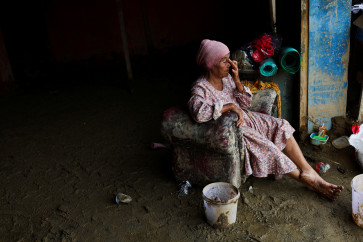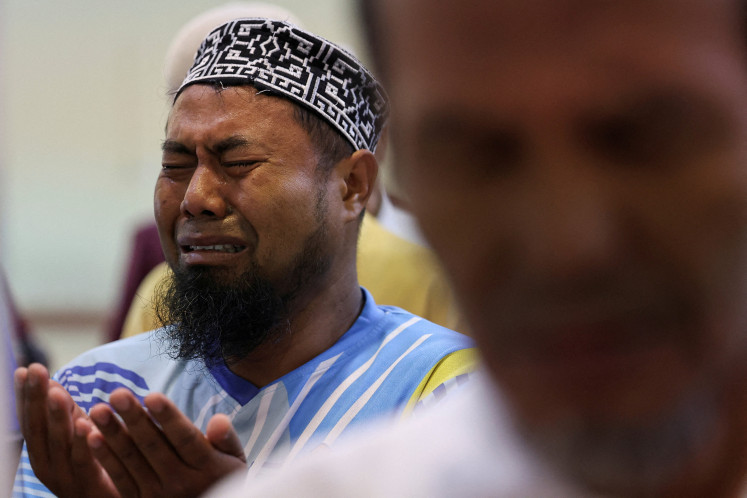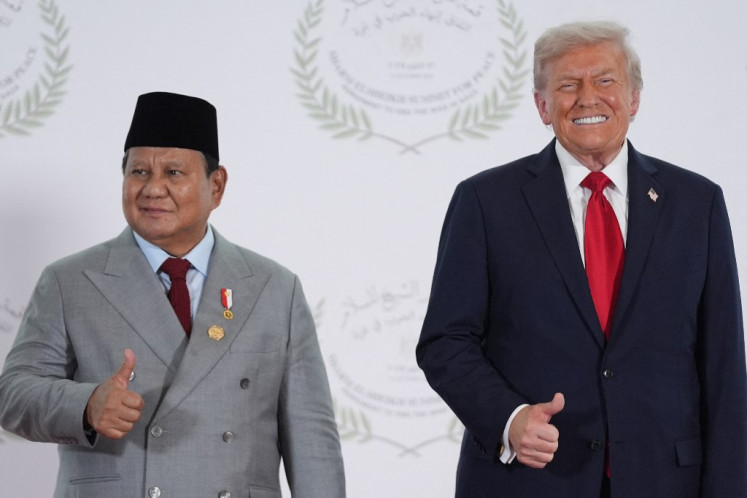Popular Reads
Top Results
Can't find what you're looking for?
View all search resultsPopular Reads
Top Results
Can't find what you're looking for?
View all search resultsGovt sticks with process of picking regional heads
Nearly 50 governors, mayors, regents to end terms this month.
Change text size
Gift Premium Articles
to Anyone
T
he government is pushing forward with vetting names for acting regional leaders who will hold on to their seats until the 2024 elections despite critics saying the process is “legally flawed” and lacks transparency, as dozens of posts are set to be vacated this month.
The Home Ministry is currently “verifying or reviewing” candidates proposed by local administrations, before submitting them to President Joko "Jokowi" Widodo for approval, said ministry spokesperson Benny Irwan.
The ministry previously instructed regional administrations to nominate candidates to fill the soon-to-be-vacated seats, Benny said without revealing how many names each region must offer.
"Most regions have submitted the proposed [names] of candidates for acting regional heads,” Benny told The Jakarta Post on Friday. “Not only from the local administrations, the Home Ministry also has received inputs, suggestions and proposals from various stakeholders.”
Benny did not comment further when asked whether the ministry would issue new regulations detailing transparent and accountable procedures for appointing interim leaders, as ruled by the Constitutional Court two weeks ago.
In its judicial opinion issued as part of a ruling on the appointment of acting regional heads, the court said the government needed to consider devising regulations that ensured "measurable and clear mechanisms” as a way to make sure it does not ignore democratic principles.
The court, however, ruled to reject requests to either extend the tenures of sitting regional heads until definitive leaders are elected in the 2024 polls or to have the elections held in the same year the current governors, regents and mayors end their terms.
Fadli Ramadhani from electoral watchdog the Association for Elections and Democracy (Perludem) said the government was obliged to comply with the ruling and should have the regulations ready prior to the candidate screening.
The appointment itself has the potential to be “legally flawed” should the government defy the ruling, he said on Friday.
“The existence of these implementing regulations [...] is fundamental. It can hugely impact the constitutionality of the process to appoint interim [regional heads],” he said. “The appointment of these acting leaders can be easily challenged and overturned by administrative courts, thus disrupting the wheels of local governments.”
Five governors of Banten, Gorontalo, West Sulawesi, Bangka Belitung and West Papua will end their five-year terms on Thursday, while six mayors and 37 regents across the country will follow suit in the following week.
A total of 101 regional leader seats will become vacant this year, including governorship in Jakarta; while 154 mayoral and regency posts and 17 gubernatorial positions will become vacant in 2023, including in the country’s most populous provinces: West Java, East Java and Central Java.
The prevailing law stipulates that echelon I officials of central and regional administrations – such as directors generals and provincial secretaries – can be assigned as acting governors until the regions in question have definitive leaders elected in the 2024 polls. Echelon II officials – like city or regency secretaries – can be assigned as acting regents and mayors.
Critics are calling for an open and more transparent selection process that allows the public to monitor and give feedback about the candidates, as the public has remained in the dark over the details of how the nomination will occur.
A survey conducted by Kompas daily on March 7-12 found that 56.5 percent of respondents believed the appointment of acting regional heads by the government, in this case coordinated by the Home Ministry, had not been carried out in a transparent manner.
Djohermansyah Djohan, a professor at the state-run Institute of Public Administration (IPDN) who has been vocally opposing the government’s direct appointment, highlighted the need to create "room for competition” and give way for public participation in the process of selecting interim leaders.
He called on the government to also regulate candidacy requirements and form an independent committee, which would shortlist the three best candidates. He said people could monitor the process and give feedback, which should be considered by the government before it appoints its final picks.
"Thus, [the process will be in line with] the Constitutional Court's ruling. [By providing a fair shot] to compete, the principle of democracy is upheld and by allowing public participation, the principle of transparency is upheld," he said on Saturday.
The court is currently reviewing another similar petition filed by six individuals, including a legislative council speaker in a Papuan regency who will see its sitting regent end his five-year term this year.










